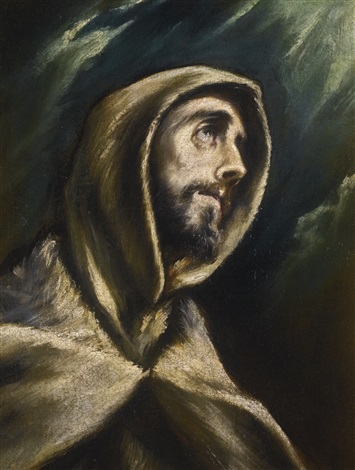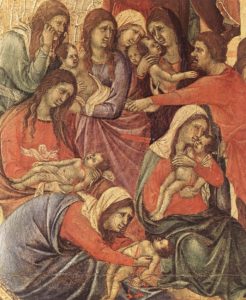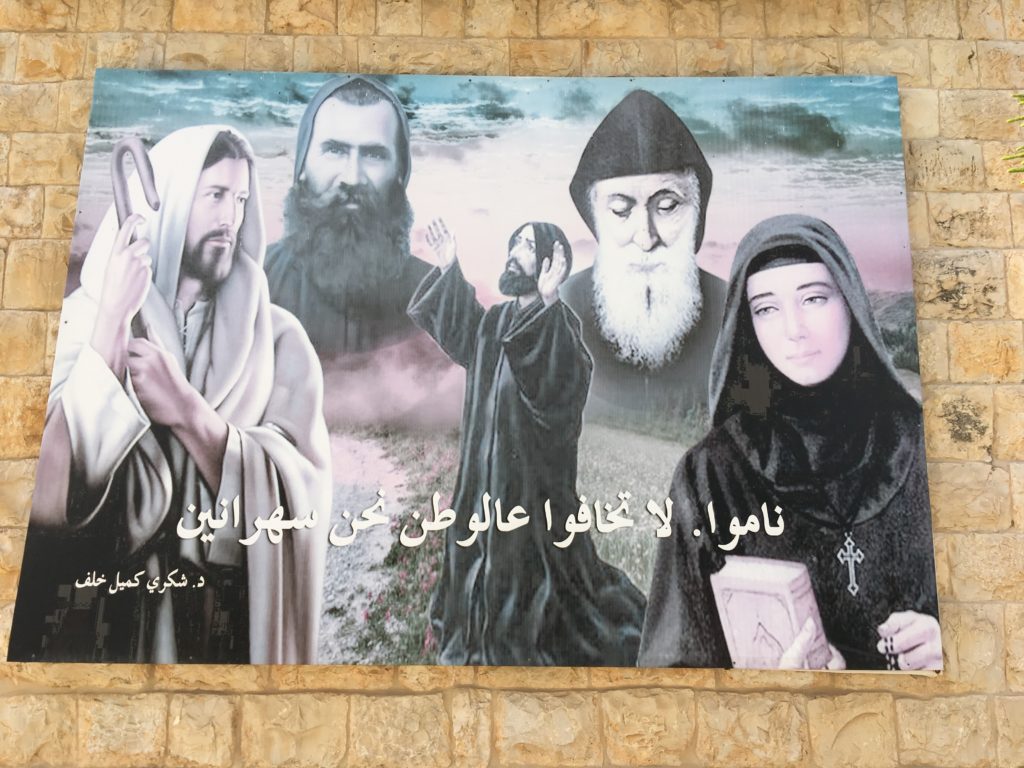
One winter day, St. Francis of Assisi (Feast Day, October 4) was traveling to the Basilica of Santa Maria degli Angeli (St. Mary of the Angels) in Perugia, Italy, with Brother Leo. The bitter cold made them both suffer keenly. St. Francis called to Brother Leo, who was walking ahead of him a bit: “Brother Leo, even if the Friars Minor in every country give a great example, and integrity, and good edification, nevertheless, write down and note carefully that perfect joy is not in that.”
When he had walked on a bit, St. Francis called him again, saying: “Brother Leo, even if a Friar Minor gives sight to the blind, heals the paralyzed, drives out devils, gives hearing back to the deaf, makes the lame walk, and restores speech to the dumb and, what is more, brings back to life a man who had been dead for four days, write that perfect joy is not in that.”
Going on further, St. Francis called out again in a strong voice: “Brother Leo, if a Friar Minor knew all languages, and all sciences, and Scripture, if he also knew how to prophesy, and to reveal, not only the future, but also the secrets of consciences and minds of others, write down and note carefully that perfect joy is not in that.”
As they continued to walk for a while, St. Francis called Leo again forcefully: “Brother Leo, Little Lamb of God, even if a Friar Minor could speak with the voice of an angel, and knew the courses of the stars, and the powers of herbs, and knew all about the treasures in the earth, and if he knew the qualities of birds and fishes, animals, humans, roots, trees, rocks, and waters, write down and note carefully that perfect joy is not in that.”
Going on a bit farther, St. Francis called again strongly: “Brother Leo, even if a Friar Minor could preach so well that he should convert all infidels to the faith of Christ, write that perfect joy is not there.”
Now, when he had been talking this way for a distance of two miles, Brother Leo, in great amazement, finally asked him: “Father, I beg you, in God’s name, to tell me where perfect joy is.”
St. Francis replied: “When we come to St. Mary of the Angels, soaked by the rain and frozen by the cold, all soiled with mud, and suffering from hunger, and we ring at the gate of the place and the brother porter comes and says angrily: “Who are you?” And we say: “We are two of your brothers.” And he contradicts us, saying: “You are not telling the truth. Rather, you are two rascals who go around deceiving people, and stealing what they give to the poor. Go away!” And he does not open for us, but makes us stand outside in the snow and rain, cold and hungry, until night falls—then if we endure all those insults and cruel rebuffs patiently, without being troubled, and without complaining, and if we reflect humbly and charitably that the porter really knows us, and that God makes him speak against us, oh, Brother Leo, write that perfect joy is there.”
“And if we continue to know, and the porter comes out in anger, and drives us away with curses and hard blows like bothersome scoundrels, saying, ‘Get away from here, you dirty thieves—go to the hospital! Who do you think you are? You certainly won’t eat or sleep here’—and if we bear it patiently, and take the insults with joy and love in our hearts, Oh, Brother Leo, write that this is perfect joy!”
“And if later, suffering intensely from hunger and painful cold, with night falling, we still knock and call, and crying loudly beg him to open for us and let us come in for the love of God, and he grows still more angry and says: ‘Those fellows are bold and shameless ruffians. I’ll give them what they deserve.’ And he comes out with a knotty club, and grasping us by the cowl throws us onto the ground, rolling us in the mud and snow, and beats us with that club so much that he covers our bodies with wounds—if we endure all those evils and insults with joy and patience, reflecting that we must accept and bear the sufferings of the Blessed Christ patiently for love of him, Oh, Brother Leo, write: that is perfect joy!”
“And now hear the conclusion, Brother Leo. Above all the graces and gifts of the Holy Spirit which Christ gives to his friends, is that of conquering oneself, and willingly enduring sufferings, insults, humiliations, and hardships for the love of Christ. For we cannot glory in all those other marvelous gifts of God, as they are not ours but God’s, as the Apostle says: ‘What have you that you have not received?’ But we can glory in the cross of tribulations and afflictions because that is ours, and so the Apostle says: ‘I will not glory save in the Cross of Our Lord Jesus Christ.’”
Francis accepted suffering in the way of the Beatitudes. In his Sermon on the Mount, Jesus explained how the poor, hungry, mourning and suffering people are tenderly loved by God, blessed by God, because they hope despite overwhelming circumstances. St. Francis makes very real that perfect joy does not come from many talents and abilities, since these are never ultimately ours, but are gifts from God. Francis, therefore, believed that the only really true gifts we can give to God, which are not originally from God, are our sufferings.
On the natural level, we, of course, do not want suffering in our life, but having reached the state described in the Beatitudes, we can accept suffering with joy. Instead of trying to avoid pain and trials, we can accept them in a spirit that would allow us to offer this rarely-appreciated human gift back to God. This is the cause of St. Francis’ perfect joy: he found the only thing that he had which he could give back to the Lord. This is how to live the Beatitudes, how to live on a supernatural level, able to say, “I will not glory, save in the Cross of Our Lord Jesus Christ.” Perfect joy is found in fidelity and in constant prayer, patiently enduring all the gifts we give to God. Joy is an interior state, independent from that which affects us externally. For beneath all the hardships is the fundamental reality of joy. The background to all suffering is total faith in the ultimate triumph of the Cross of Christ.
Hymn to Joy
Joyful, joyful, we adore Thee, God of glory, Lord of love;
Hearts unfold like flowers before Thee, opening to the sun above.
Melt the clouds of sin and sadness; drive the dark of doubt away;
Giver of immortal gladness, fill us with the light of day!
All Thy works with joy surround Thee, earth and heaven reflect Thy rays,
Stars and angels sing around Thee, center of unbroken praise.
Field and forest, vale and mountain, flowery meadow, flashing sea,
Singing bird and flowing fountain call us to rejoice in Thee.
Thou art giving and forgiving, ever blessing, ever blessed, Wellspring of the joy of living, ocean depth of happy rest!
Thou our Father, Christ our Brother, all who live in love are Thine;
Teach us how to love each other, lift us to the joy divine.
Mortals, join the happy chorus, which the morning stars began;
Father love is reigning o’er us, brother love binds man to man.
Ever singing, march we onward, victors in the midst of strife,
Joyful music leads us Sunward in the triumph song of life.
(Text: Henry Van Dyke; Music: Ludwig van Beethoven; Arr. by Edward Hodges; Tune: HYMN TO JOY.)
About Carolyn Humphreys, OCDS
Carolyn Humphreys, OCDS, OTR, is a Discalced Carmelite Secular, and a registered occupational therapist. She is the author of the books: From Ash to Fire: A Contemporary Journey through the Interior Castle of Teresa of Avila, Carmel Land of the Soul: Living Contemplatively in Today’s World, Mystics in the Making: Lay Women in Today’s Church, and Living Through Cancer, A Practical Guide to Cancer Related Concerns. Her latest book is Everyday Holiness: A Guide to Living Here and Getting to Eternity. You can find her reflections online at contemplativechristianityorg.wordpress.com.






